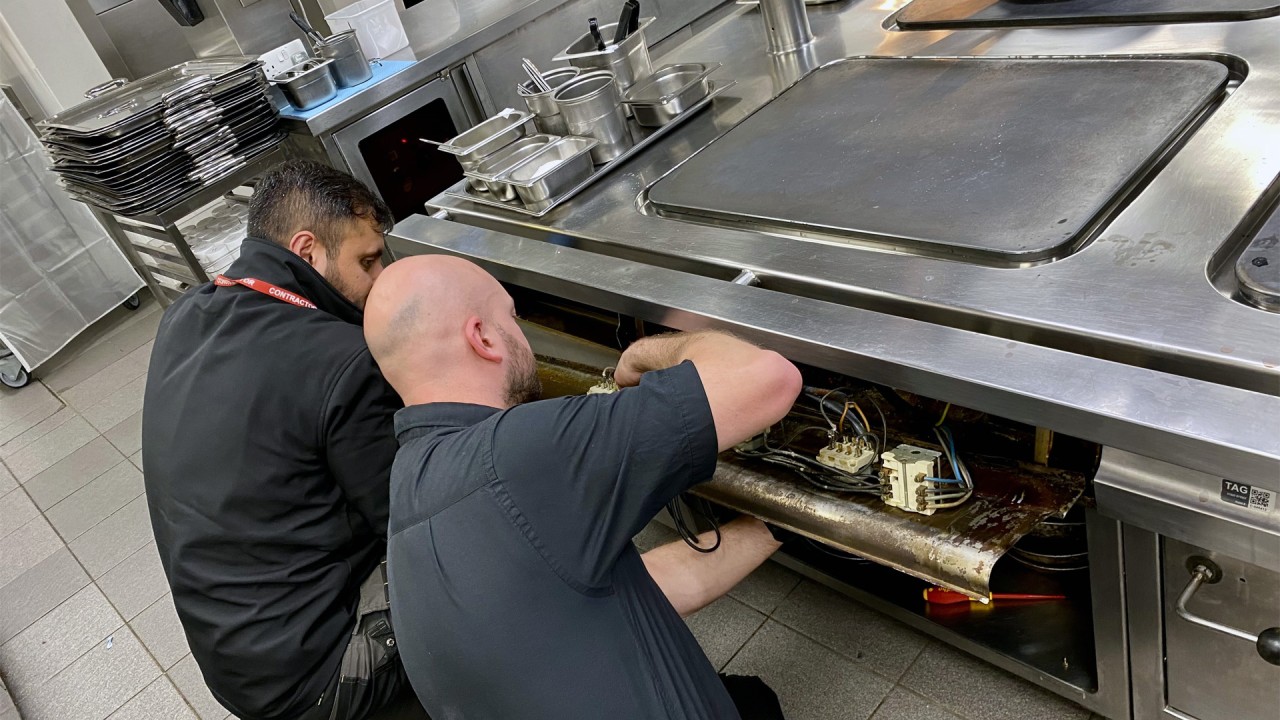
Maximising Efficiency: Planned Preventative Maintenance Contracts
TAG Catering Equipment UK Ltd
Pioneering efficient commercial kitchen solutions since 1988 | #KitchenInnovation
Did you know that having a planned preventative maintenance contract (PPM) in place is a more cost-effective means of not only ensuring your equipment is running when you need it most but also extending the life of your catering equipment?
They are an excellent way to reduce breakdowns, costly repairs, loss of business and even harm to employees!
All equipment included within a planned maintenance contract will benefit from annual safety inspections, gas inspections, heavy services and light/interim servicing carried out to the manufacturer’s guidelines and recommendations. This will also ensure that the equipment remains compliant with the manufacturer’s warranty conditions.
Benefits of PPM
1. Improved Efficiency
One of the key benefits of having a PPM contract in place is that it helps keep your equipment running efficiently.
Over time, catering equipment can become less efficient due to constant use, causing wear and tear. This can lead to an increase in energy consumption, contributing to higher bills.
Regular maintenance schedules can identify any issues with your appliances and ensure they are addressed before they become a more costly repair. Not to mention, it also allows you to optimise their performance and reduce energy wastage.
If your equipment is running at its optimum performance, it will also mean the quality of food is better. For example, for chips in a fryer, the oil needs to be heated to the optimum temperature otherwise the chips will absorb oil, making them greasy. A poorly performing fryer through lack of planned maintenance with mean the oil never gets to the right temperature, giving poor quality food, or taking too long to heat, slowing service down!
2. Extend Equipment Lifecycle & Sustainability
Taking good care of your appliances with regular maintenance can significantly extend their lifespan. Regular maintenance is crucial for all types of equipment, including gas equipment, to ensure safety and efficiency.
For example, dusty condenser coils cause your refrigeration to work harder as it will struggle to maintain temperature, resulting in increased energy bills and a shorter equipment lifecycle because the other components are “stressed” or working too hard.
Alongside planned maintenance, using original equipment manufacturer parts (OEM) which are made directly by the manufacturer will help to reduce the number of future replacement parts and repairs. They are designed specifically for the equipment rather than a universal one fit for all.
By keeping your equipment running longer with regular planned maintenance, you will replace it less often, which is better for the environment and your capital expenditure. It’s also important to invest in high-quality equipment that is easier to maintain and find replacement parts for.
领英推荐
3. Cost Effective
Avoiding large, expensive, and emergency repairs by having a preventative maintenance agreement for your commercial kitchen equipment is crucial for cost savings. By reducing the risk of future equipment breakdowns, your operation will save money in the long term.
Conducting regular inspections and having planned preventive maintenance (PPM) in place will help to highlight potential minor faults that are likely going to be a cheaper fix and remove any significant disruption caused by a full-on major breakdown.
A great example of this is door seals on fridges. It is a relatively inexpensive and easy-to-fit part, ensuring optimum efficiency of your fridge.
A perished, dirty or damaged door seal will mean the fridge is working harder to get to the desired temperature, meaning more expensive components like the condenser will fail sooner. A very costly repair!
Our engineers can spot signs of wear and tear on your equipment, leading to a quick repair or part replacement, further reducing disruption within your operation.
4. Safety and Compliance
Servicing, regular maintenance, and even emergency repair work are essential in keeping your kitchen running, but also necessary to ensure your equipment is compliant with current industry regulations.
A maintenance visit ensures that your catering equipment complies with important Health & Safety requirements such as Gas Safety Regulations, or servicing of a blast chiller means food is reduced in temperature in the right timescales to satisfy EHO and HACCP requirements.
Regular maintenance can also help identify bad practices from staff which could damage key equipment or invalidate the warranty!
PPM and service contracts are crucial for any commercial kitchen, big or small! We have provided service, maintenance and breakdown cover for over 35 years, helping clients reduce downtime, and equipment failure and increase efficiency.
If you have any questions regarding PPM for a commercial kitchen, and what service schedule is suitable for your kitchen, please drop us a message!